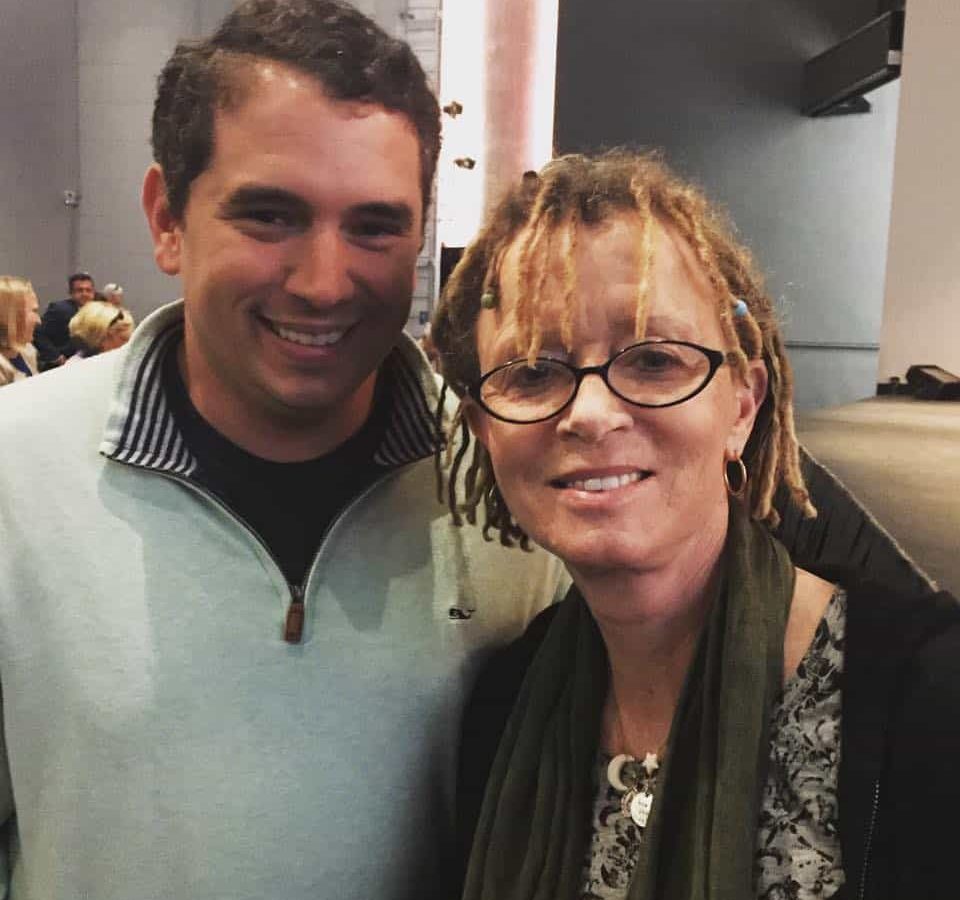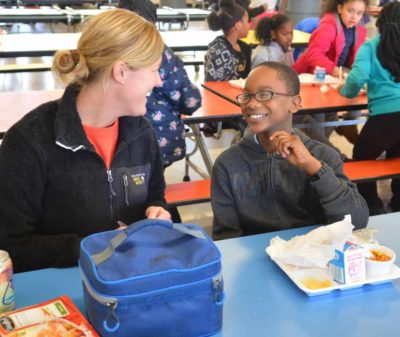

“Start. Just start. You have a great story inside of you that needs to be shared with the world.”
Noted author Anne Lamott’s words rang out in the P.E. Monroe Auditorium on an unseasonably cool spring night. Lamott joked as she came to the stage that she brought the wrong set of notes with her to the stage saying that, “I usually talk about faith and writing, or writing and faith. Tonight I’m going to focus on writing.”
Lamott was in town as part of the 25th Anniversary of the Lenoir Rhyne University Visiting Writers Series, which brings world class authors to the small university in the mid-sized town of Hickory.
Lamott opened the evening by asking those in attendance to raise their hands if they were working on a written piece, a book, or an essay. A smattering of hands went up. She then asked who would like to be working on one and far more hands went up.
“What are you waiting for?”
Lamott noted that when we are 80 years old we would likely find ourselves wishing that we had told our story rather than spent an extra day per week at the gym or an hour per day watching the evening news. She challenged us to remember that it will be a loss for future generations for them to not know how we met our challenges, fell in love, built a company, faced death, and generally how we shaped our life.
The Visiting Writers series is an important contribution from Lenoir Rhyne to the broader community.
As a young child growing up in rural North Carolina, books were my escape to a broader world. They offered the opportunity to visit places I would never have been able to travel to as a young child growing up first in poverty and later in a middle class setting. They taught me how to think, to challenge assumptions, and gave me a guidebook for how to begin to meet the difficulties that life presents.
The work of Lenoir Rhyne University and other institutions to bring culture throughout our state will make a difference for us all.
A few hours prior to Lamott’s lecture I had the good fortune of attending a discussion on rural issues facing North Carolina. Throughout the discussion, it was clear that many of the communities who are best at greeting the challenges of rural North Carolina are those who have been intentional with regards to investing in infrastructure, including building partnerships between the local university or community college, the business community, and K-12 schools. The partnership between Lenoir Rhyne University, local businesses, the Arts Council, and the library system to bring storytellers such as Lamott to town is one such example.
Communities who intentionally invest in building an atmosphere for creativity to flourish might be most effective at reducing “brain drain” in order to recruit and retain young talented individuals who can help shape the future of our communities.
Who knows what creative projects an inspired young woman or man who was seated in P.E. Monroe to hear Anne Lamott speak last week might unleash on the Unifour region of North Carolina now that they have been challenged to just start.


